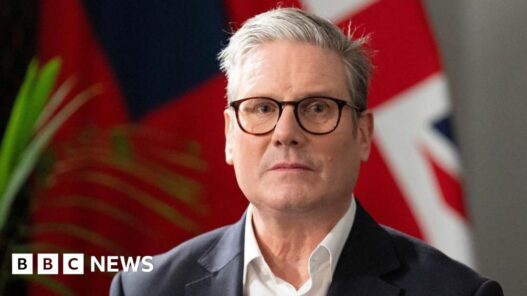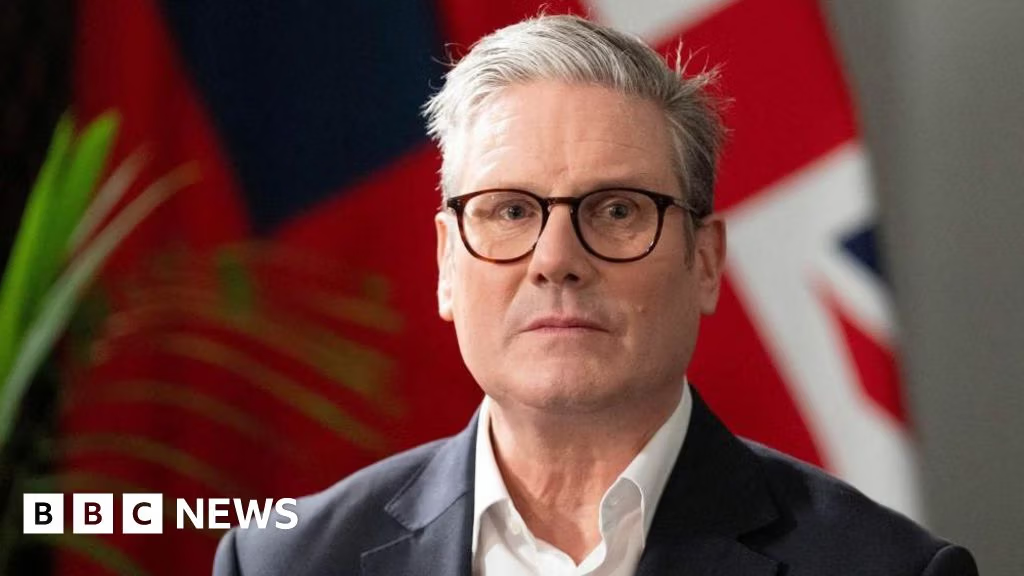There is a big week ahead.
It will mark the end of the post-election chapter in British politics and the beginning of how the coming years are likely to feel.
A week on Saturday, the Conservatives will elect their new leader.
Rishi Sunak, a symbol of what went before, will finally exit the stage and his successor will enter it – and so become one of the central characters of the years ahead.
And on Wednesday, the highly anticipated and long talked about Budget will be published.
The Conservatives trying to sort themselves out in opposition and the Labour Party trying to sort themselves out in government have defined the four months since the general election.
Incidentally, in the interview I’ve just done with Prime Minister Sir Keir Starmer, he was at his most animated when I put it to him that his party seemed to be struggling to adjust to the realities of government.
Sir Keir leant forward towards me as I read out this list:
“Can I address that head on?” he said, before pointing to the early work the government has done to try to kickstart the economy.
It felt like I had touched a nerve.
Privately there are Labour folk frustrated at what they see as a stuttery start to their time in power.
They hope the next week can reset things – and shape the political landscape ahead.
First, though, for the prime minister – and those like me reporting on him – a body clock-smashing, jet lag-inducing, totally exhausting 20,000-mile round trip to the tropical south Pacific.
Little wonder Sir Keir is the first sitting British prime minister to visit a small Pacific island nation – we were on a plane for 28 hours to get here, and we have still got to get back.
The Commonwealth Heads of Government Meeting happens every other year and is a staple for prime ministers.
Sir Keir told me it was an important event for the UK, with the King and Queen here too – and pointed to the collective economic might of the Commonwealth’s members: a combined economic output of $20tn (£15.4tn).
This region, the Indo-Pacific, is also seen as increasingly economically important to the UK, post-Brexit.
Before we know it, though, the long schlep home will begin – via Hawaii, California and Winnipeg – and Westminster’s tilt towards the Budget will become total.
The confirmation from the chancellor, long hinted at, that the government is re-writing its rules, its choices, on borrowing and debt isn’t a surprise.
Its formal announcement, after weeks and weeks of hints, is part of a strategy to avoid surprises that could spook the markets – remember that is exactly what happened two years ago and it finished off firstly the then-chancellor, Kwasi Kwarteng, and then the prime minister, Liz Truss.
What else can we expect? Some spending cuts and some tax rises, particularly on those seen by the government as relatively well off – some of those, perhaps, who pay capital gains tax, inheritance tax or have significant pension savings, for instance.
They want to take what they see as difficult decisions early, with the next general election miles away.
“I believe in running towards problems,” Sir Keir told me. “If you know what the problem is, what the challenge is, every business knows this, every family knows it, run towards it and fix it.”
The challenge for them will be how that dash towards perceived problems goes down. Does it solve political problems for them, even if someway down the track, or create more?
Is this next chapter in politics one the government can own, shape and dominate, or will they continue to be buffeted by missteps and a new-look but shrivelled opposition opposite them?
This article was originally published at www.bbc.com



















